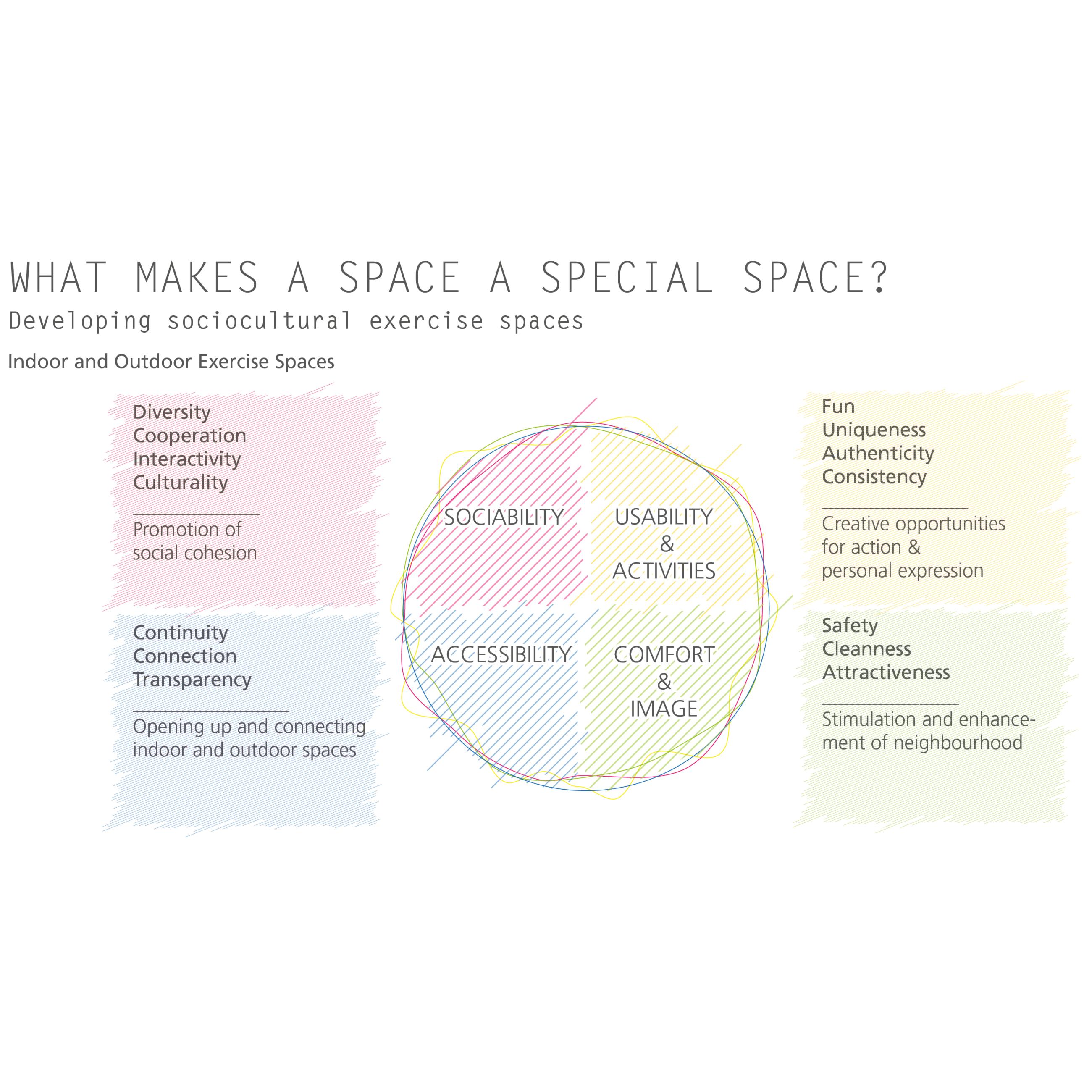IAKS Expert Circle on Sports Halls discussed modern sports facilities in Cologne, Germany
Workshop: Challenges and approaches in creating modern sports facilities and exercise spaces - Nov 2019
Report by Harald Fux
Following the successful founding event for IAKS Austria on 26 April 2019, the IAKS Expert Circle on Sports Halls met in Vienna, and a further workshop of sports hall experts from the fields of industry, operation and planning was held during the 26th IAKS Congress 2019. Twelve IAKS members from five countries met under the chairmanship of Harald Fux, President of IAKS Austria.
Karin Schwarz-Viechtbauer, member of the IAKS Executive Board and chair of the workshop in Vienna, began by outlining the basic issues and objectives discussed there:

Diagram: RAUMKUNST ZT